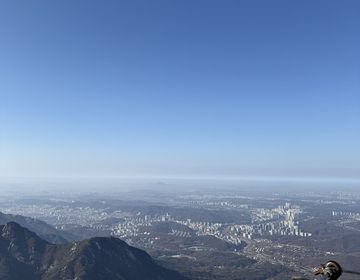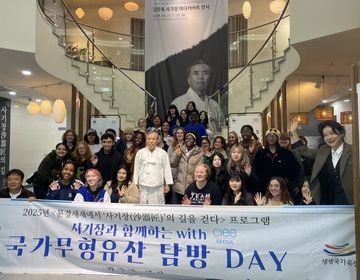Capitalism and Inequality: Ever Present No Matter Where I Go
As an International Studies Major with concentrations in Political Science and Economics, many of the phenomena I study revolve around capitalist systems. I consider it an important part of my holistic educational experience to be mindful of it as permeating in my everyday life, as with many other things. To me, capitalism is fully the market-based, competition-centric economic system, as well as the political, social and cultural implications of it globally. Before my arrival to Yonsei University, I would not have imagined how themes of social stratification, abject poverty, cut-throat education and obtuse consumption would follow me overseas and further complicate my perception of the world.
Personally, I chose to participate in the CIEE program firstly for the educational lessons and only secondly for the overall cultural experience. But, these two motivations are integral parts of each other. I gain cultural awareness and insight in my classes and studies, conducted by Korean professors and alongside Korean students, and my everyday experiences take me back to the themes in my readings and lectures. What I have been experiencing more of is the latter. In the context of capitalism, my observations are both positive and negative, but negative aspects are more jarring. I, an American, am accustomed to the concentration of wealth by the elite, and at the same time, value the rewards of hard work. I, an American, am accustomed to seeing homeless citizens attempt to find a place to sleep amongst hostile architecture near a 30 foot tall skyscraper. I, an American, am used to endless consumerism at the expense of foreign countries’ citizens.
Much of the negatives I personally associate with capitalism are various levels of inequality. Of course, so much good comes from the capitalist system: innovation, prosperity, an exchange of ideas, and so on. But as I mentioned prior, there is nuance, and as a global citizen looking to make a positive impact, I find it’s best to look where society is crumbling, not where there is already prosperity.
Now, to the main point of my study abroad experience in Seoul: themes of inequality manifest themselves differently across the Pacific, but the feeling and devastation is much the same. Economic inequality is much lower, but the social inequality (stratification) is much higher. I see greater social stratification in the way interactions occur between individuals in Korea. I feel it in the language and honorifics. But I also see the average, everyday citizen having a better quality of life than compared to the United States. The government guarantees a better standard of living than the US system.
It is much, much more complicated than this, of course. The older generations in Korea, in a way, are monetarily neglected by society, simply because, among other reasons, the economic burden of older generations is high. Additionally, perceptions surrounding hierarchical positions across society are changing. Underneath my initial, glassy eyed perception of Seoul at first arrival were these complex socio-cultural and economic systems I had always learned of, but was never able to feel until recently.
To end, I wanted to share a poem about a theme I’ve noticed in both Korea and America. Both countries value consumerism very highly, at the cost of losing connection with the items and services we purchase. When I go to the convenience store, or order food by delivery, I feel alienated from who helped make my food, clothing and so on. This is yet another product of capitalism which I have not escaped despite being abroad.
Obfuscation
By Chase Engel
The unknown logger felled an unknown tree,
In an unknown forest where tall trees stand.
The poem that rests on this paper you see
Could have come from any distant dreamland.
But what does that matter? The consumer might say,
This page cost a dime, or less than a cent.
Why should one know the forgotten past at play
In the culminating purpose this paper was meant?
Perhaps this piece is displayed on a screen
In which wires, lights and circuit boards crowd.
The anonymous multitude who designed this machine,
Their story forever unannounced.
Alienation: blame capital fixation,
Nothing supersedes cash accumulation.
Obfuscation of any relation
To the human who had so much dedication.
Obfuscation of any location
To which that item once held designation.
As I pace through stores with many aisles
My eyes glued on products lined in rows
So many options stretch on for miles
How many there are, only God knows.
Prices displayed with discounts and deals of
Clothes, each hardly distinct from each other.
Who hemmed these pants, knit this sweater with love?
Who toiled so I’d be warm in winter?
From their lifeworld they were recklessly torn
Shipped, flown, driven and carried distances
That isolate them from where they were born
But where they go there are no witnesses.
Related Posts

Soul Searching in Seoul: Everything I Learned and What I Wish I Knew
Before I start crafting my “study abroad changed me” answers for friends and family, here are the practical things I wish I’d known. The things that would’ve saved me time... keep reading

A Seoul Escape to Bukhansan
Get out of the hustle and bustle of Seoul and head to the peak of Bukhansan!

My Time in South Korea Attending Yonsei University: A Life-Changing Chapter
By: Zahrraa Al-Salman Studying abroad had always been a dream of mine—an opportunity to step outside of my comfort zone, immerse myself in a new culture, and deepen my understanding... keep reading
